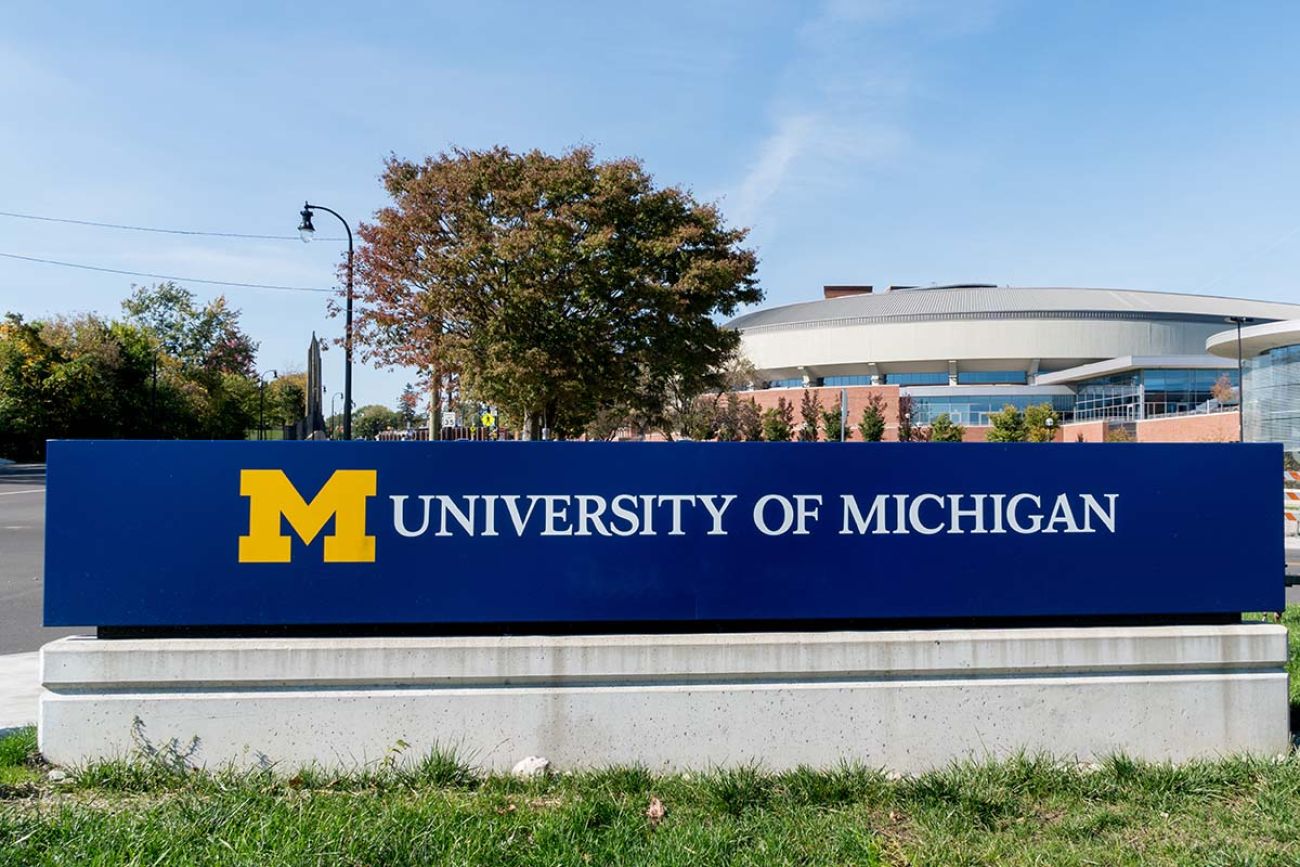University of Michigan graduate student workers vote to strike

- Graduate student employees at the University of Michigan have voted to authorize a strike
- The university says it will continue to hold classes even if there is a strike
- Union members seek a 60-percent pay increase for next year; UM is offering an 11.5-percent raise over three years
April 10: Judge declines to order University of Michigan grad students back to work
April 4: U-M grad student worker strike continues; judge won’t end walkout
March 29: University of Michigan pushes back against graduate student strike
March 28: University of Michigan graduate workers set to begin strike Wednesday
ANN ARBOR — University of Michigan classes may soon be disrupted as the union representing graduate student workers prepares to strike over demands for a significant pay increase, changes to healthcare benefits and other issues.
Ninety five percent of those voting in the Graduate Employees’ Organization (GEO) approved authorization for a strike Thursday evening. The union, which includes grad student instructors and staff assistants, said it has given the university the weekend to improve its offer.
The union is seeking a 60-percent pay raise in year one of its new contract, which would increase pay for grad students who teach in the fall and spring from about $24,000 a year to about $38,000, Amir Fleischmann, chair of the GEO contract committee and member of the bargaining team, told Bridge Michigan Friday.
Related:
- MSU offered active violence training. Few attended before shooting
- Michigan State faculty worried about door locks 5 months before shooting
- MSU's long path ahead: What other universities have done after mass shootings
Citing the expense of living in Ann Arbor, the group wants additional raises in subsequent years tied to the cost of living, which Fleischmann said would help graduate students deal with rising housing costs.
The sides remain far apart on wages. Administrators accuse the group of being inflexible in its pay demands and question its right to strike under its current collective bargaining agreement, even threatening to take the GEO to court if its members walk out.
The university is proposing an 11.5 percent increase over three years, with a 5 percent raise in the first year, a 3.5 percent increase the following year and 3 percent increase the year after.
Negotiations have been ongoing since November. Members are meeting with the university Friday for another bargaining session.
Fleischmann told Bridge that Friday's bargaining session gives “the university another shot to come to its senses” before a strike begins.
The union includes 1,315 graduate student instructors (GSIs) and graduate student staff assistants (GSSAs). GSIs teach undergraduate classes, grade assignments and hold office hours while GSSAs do other work for the university, including helping with programming. In addition to pay, the grad students receive tuition waivers for their university work.
It's official: GEO members have voted overwhelmingly to #strike, with 95% voting in favor of authorizing GEO’s leadership to call a work stoppage.
— Grad Employees' Org UMich (@geo3550) March 24, 2023
We know a better university is possible, and we're prepared to take action to make it happen. Solidarity! pic.twitter.com/b5MNuscciy
It’s unclear if and when a strike would begin if the sides can’t reach an accord. Fleischmann said the union plans to hold a meeting Monday to determine next steps.
“I think that the decision is pretty simple for our members: Is there going to be an offer on the table to meet their needs, or no?” Fleischmann said.
Newly sworn in U-M President Santa Ono expressed disappointment in the strike vote.
“A strike would needlessly hurt undergraduate students and violate the union’s own contractual commitment not to do so,” Ono and Provost and Executive Vice President for Academic Affairs Laurie McCauley wrote in a message to the campus community Friday morning.
Along with pay, Ono and McCauley said two points of contention related to safety response and ability to shift to remote classes.
“The union demands unilateral authority for (graduate student instructors) to shift classes to remote mode for any health and safety reason. Such latitude would be detrimental to the university’s core identity as a residential institution and its commitment to ensuring continuity of education for our undergraduate students.”
Fleischmann, a PhD candidate studying political science, said the union has also sent the administration proposals on childcare, sexual harassment policy, mental health copays and funds for international workers.
He said in many cases, the university has “refused to even admit” there is a problem, but there has been some movement on the union’s proposal on healthcare for transgender people.
The union previously went out on strike in September 2020 over COVID-19 safety and policing issues.
In a separate notice, the university announced Friday it will be improving its pay model for PhD students. Students will be funded for 12 months, rather than by semester and be eligible to receive $36,084 a year. The changes would mean the minimum stipend for eligible students on the Ann Arbor campus would increase by 50 percent, the university said.
What happens now?
Ono and McCauley said the university will continue to hold classes if there is a strike.
“Our school, college, and department leaders are planning for substitute instructors, alternative assignments, and other means for delivering instruction if it is required,” the message said. “There would likely be visible activism on the campus and we respect the right of any group to peacefully advocate for their positions.”
The university said it would also take legal action against the student group if it walked out, saying a strike violates both the current bargaining agreement and state law.
“Those actions will include asking a court to find a breach of contract and order strikers back to work, stopping the deduction of union dues, filing unfair labor practice charges, and not paying striking GSIs and GSSAs for time they do not work.”
The Ann Arbor campus’ last day of classes this semester is April 23.
Michigan Education Watch
Michigan Education Watch is made possible by generous financial support from:
Subscribe to Michigan Education Watch
See what new members are saying about why they donated to Bridge Michigan:
- “In order for this information to be accurate and unbiased it must be underwritten by its readers, not by special interests.” - Larry S.
- “Not many other media sources report on the topics Bridge does.” - Susan B.
- “Your journalism is outstanding and rare these days.” - Mark S.
If you want to ensure the future of nonpartisan, nonprofit Michigan journalism, please become a member today. You, too, will be asked why you donated and maybe we'll feature your quote next time!






